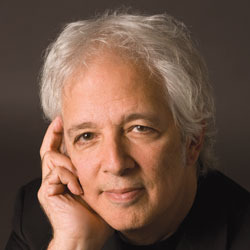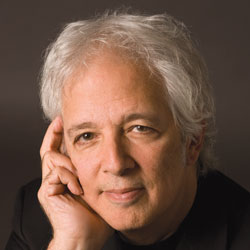A Chat With Julia Child's Biographer
We may receive a commission on purchases made from links.
Many of us feel as if we know Julia Child — we've watched her cooking shows religiously and read Mastering the Art of French Cooking front to back — seriously (when we saw the movie Julie & Julia, we finally felt like someone understood us). But no matter how well we as fans think we know her, there is much about her life that we don't know. There have been a surprising number of books about Child already — including two (one for children) about her relationship with her cats! — and last week these were joined by a new biography, DEARIE: The Remarkable Life of Julia Child , by Bob Spitz, which some say does a particularly good job of capturing Child's spirit.
To get just a bit closer to Child ourselves, we spoke with Spitz and asked about his relationship with her, his experience writing her biography, and of course, some of his favorite cooking moments inspired by her.
The Daily Meal: What got you interested in Julia Child?
Bob Spitz: Of course, I watched The French Chef at my mother's elbow when I was young and became fascinated with Julia, both as a personality and a cooking teacher. Meanwhile, Julia transformed my mother from a seriously mediocre cook (sorry, mom!) into a creative and inventive home cook, the rewards of which I reaped for years. So, like most young people growing up in the 1960s, I had a personal attachment to Julia Child, and that outsized character of hers always enchanted me. I wanted to know how she set out on this amazing course and became a beloved icon. And I wanted to place her in a cultural context.
TDM: How well did you know her before you decided to write this book?
BS: I met Julia in Sicily, in 1992, where I was on assignment for a number of magazines. Someone asked if I would travel with her for several weeks while she made a tour of local restaurants, and we spent those days eating, of course, but also talking at great length about her life and life in general. And we stayed in touch over the next few years. At the time, she was involved with another biographer, and she was very disappointed with the way things were going, as well as the eventual result. She said, "The book made me seem as if I were already dead." What she meant, of course, was that it failed to capture her gregarious spirit and that you couldn't smell food on the page. I promised her that, one day, I would write a lively, critical biography of her life, but at the time I was involved with The Beatles, a project that took almost nine years to finish. By that time, sadly, Julia had died.
TDM: What is your writing process like — how do you familiarize yourself with the subject?
BS: Like every biographer, I begin by reading everything I can get my hands on — in this case, previous books about Julia, her own masterful cookbooks, and books about cooking and food in general. Then I begin a round of interviews with experts on the subject of gastronomy, and, as you can imagine, there was no shortage of candidates. The real in-depth research, however, lay in Julia's archives — 126 boxes stuffed with her personal papers, scrapbooks, journals, annotated TV scripts and manuscripts, and assorted ephemera — at the Schlesinger Library at Harvard. A trove! I spent six months pouring over those boxes before touring the country, interviewing family members, friends, colleagues, and acquaintances who could narrate their interaction with Julia. Then I went to France, to follow her path. And I also had about 40 hours of interviews from my tour with Julia in Sicily to draw on. The basic research took about two years before I began writing, and the manuscript took another two to complete.
TDM: What is your favorite part of the process — finished and published, or researching the subject?
BS: Neither. I love the research portion, which gives me an amazing understanding and foundation, but I am one of the few biographers who adores the writing process. I love looking at a blank screen and watching my subject come to life — plying all the research and massaging the text again and again, much like a sculptor with clay, until the image appears and feels right.
TDM: What is the most surprising thing you learned about her while writing it?
BS: I was astonished that, at the age of 40, Julia still did not know how to cook and considered herself something of a lost soul — and that she didn't appear on TV until she was 50. The surprise, for me, was watching this woman completely reinvent herself at midlife, and not just reinvent herself as a success, but as a woman who wrote perhaps the greatest treatise on French cooking in the English language and who became one of the most beloved television personalities, on par with Johnny Carson, Oprah, and Kermit the Frog. Oh yeah, and she also happened to be the linchpin for PBS — its first network star and syndicated performer. There's hope for all boomers!
TDM: There are so many different books about Julia out there, what would you say the angle is that you took when writing this book?
BS: First off, I wanted to be the first book that covered her entire life in depth, and I set out to be the definitive work on the subject. And I wanted to bring my own critical eye and insight to it. There were more than 1,000 books about the Beatles when I tackled that biography, and I tried to write a book about Julia with the same scope.
TDM: From your research, what are some things you think Julia would want people to know when it comes to cooking?
BS: I think Julia fought all her professional life against the image people had of her, as a somewhat comical, outspoken personality who dropped food (she never did) and her self-image as a serious cooking teacher. Julia was relentlessly dedicated to her craft, and she saw her primary purpose, not as a TV star or even a cook, but as a teacher. She researched her recipes until there were no questions left to ask. She took herself and her writing seriously. And she suffered no fools. Just ask Julie Powell [author of Julie & Julia].
TDM: In ten words or less, what was the impact Julia had on cooking and the way we view it today?
BS: She brought fine French cooking to American home tables, using the best, fresh ingredients, launching a revolution.
TDM: Do you like to cook?
BS: Love it. I cook the main meals for my family every day.
TDM: Favorite dish?
BS: Osso buco. Julia, by the way, was not a fan of Italian food. It bored her. (Really!)
TDM: Favorite cooking ingredient?
BS: Shallots. I'm trying to figure out how to work 'em into my Cheerios.
TDM: Favorite recipe of Julia's?
BS: Roast chicken — the recipe she considered the most satisfying meal.
Buy your copy of DEARIE: The Remarkable Life of Julia Child here.
Anne Dolce is the Cook Editor at The Daily Meal. Follow her on Twitter @anniecdolce

